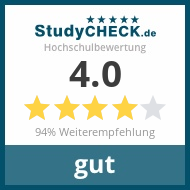target group
- This course is designed for graduates who have work experience in the field of engineering and want to gain solid and fundamental knowledge in modern aspects of processor technology, packaging, microsystem and sensor technology as well as fundamental information on operations and logistics management and project management in semiconductor industry and related branches. Therefore, combining the competencies of engineers with those of managers in this field.
Advantages
Admission requirements
- Bachelor’s Degree (4 years degree) in Electrical Engineering, Automation, Solid-State Physics, IT, Mechanical Engineering - 240 Credit Points
- Average Grades Exceeding 70 %
- Knowledge in English: IELTS 6.0 or TOEFL iBT 79
- Motivation for International and Intercultural Experience
- Minimum: 1 year of work experience
flexible learning
The lectures take place for the most part in presence and online. Study materials are made available to students to enable asynchronous self-organized learning.
Lecture-free period phases during the summer and Christmas periods.
in-depth expert knowledge
The team of lecturers in the program includes both top-class scientists and experienced practitioners. In this way, well-founded information from science and research is combined with a high degree of practical relevance.
extensive exchange
Participants in this course come from a wide variety of fields and can greatly benefit from diverse learning groups, to expand their horizon. We offer interdisciplinary exchange in a relaxed atmosphere.









